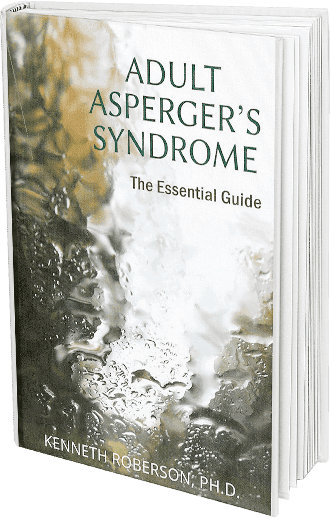
If you are in a significant relationship with someone who has Autism Spectrum Disorder (ASD) you probably know what it’s like to be angry.
The personality traits in ASD tend to generate more resentment, misunderstanding, disappointment and frustration than are typical in close relationships.
As if that wasn’t enough, those same traits make it harder to resolve relationship problems. Once resentment and anger builds up, it’s very hard to get past them.
Here are eight suggestions, gathered from my experience as an Autism Spectrum Disorder psychologist, to help you handle anger in your relationship with someone who has Autism.
1. Know The Triggers
Knowing what triggers anger in you or your partner can help prevent it from happening in the first place.
Perhaps you tend to feel let down by others. Or you imagine people expect too much from you without giving anything back. When your partner acts in certain ways towards you, your first response is to feel let down, misunderstood or taken advantage of. From there, it’s not a big step to becoming angry.
On the other hand, your partner is a likely source of anger. He may be very competitive, for example. It doesn’t take much for interactions between the two of you to be about one person winning and the other losing.
Maybe your partner reacts more logically and less emotionally than you do. If you notice feelings and he listens to logic, misunderstanding each other’s needs and perspectives is likely.
Knowing what triggers anger will help you and your partner find better ways of coping with it.
2. Listen
Listen to your partner’s point of view. Even though you may disagree, try to understand that position from your partner’s perspective. Many of the conflicts in relationships occur because each person feels they are not being heard.
There is no harm in listening. It’s okay to disagree, but to validate your partner’s needs and feelings by listening to them encourages a sense of being heard, which is a crucial first step towards starting a useful dialogue. Listening is my most effective tool, as an ASD psychologist. It can be yours as well.
3. Understand Autism Spectrum Disorder
People with Autism Spectrum Disorder don’t necessarily have the same need to express emotions as others do. They have difficulty interpreting nonverbal language and the emotions of others. Facial cues such as frowning or staring may not be read accurately or at all. Their own emotions may feel intense to them because of heightened sensitivity to feelings, social situations or to painful sensory experiences such as loud noises or bright lights. The give and take of intimacy may seem more like unpredictability and irrationality, things to minimize and avoid.
It is untrue that people with Autism do not feel. But their emotional reactions are often different. If you can understand from their point of view how they operate, you are likely to feel less angry yourself.
4. Calm Down
It’s difficult for all of us to think calmly and rationally when we’re angry. If working through conflict is important to you, calming your initial emotional response is crucial. Only then are you likely to express your own anger constructively and deal with your partner’s anger similarly.
Doing something relaxing or distracting can help you calm down. Physical activity often helps us let go of negative feelings.
5. Don’t Build Resentments
Once you feel calmer, you can address the problem more constructively. Try to do this as close to when you experience it as possible, rather than letting resentment build up.
Over time, you can learn to recognize anger cues sooner and react to your partner’s behavior differently so that you can prevent the build up of an escalating cycle of resentment and anger.
Most professionals, such as Autism Spectrum Disorder psychologists, see the build up of resentment as a prime cause of relationships failing for adults with ASD.
6. Work With Your Partner
Anger between two people generally requires a mutually agreed upon solution. Work with your partner on that solution. Write down points of agreement and disagreement, and address them one by one.
Then write down as many possible solutions as you both can think of. Start with points of agreement so you both feel you’re making progress. Find mutually agreeable ideas and continue until you reach a reasonable compromise.
7. Try Solutions
Instead of talking about what to do, try the things you’ve both agreed might help.
Be sure you agree about who will do what and when. And be clear about what you’ll both do if it doesn’t work.
Be as specific as possible. Few things are more detrimental to solving a problem than vague goals and ambiguous consequences.
8. Evaluate
No plan works if there’s no way to tell if and when you’ve accomplished what you set out to do.
If you find out that your solution to anger isn’t working, talk with your partner about what will. Brainstorm new options. Find mutually agreeable steps to take in a different direction and take them.
To the best of your ability, keep at it. With persistence, the cycle of generating solutions, implementing them and evaluating the results will lead you and your partner to a successful resolution of the anger that often occurs as a result of Autism Spectrum Disorder.




